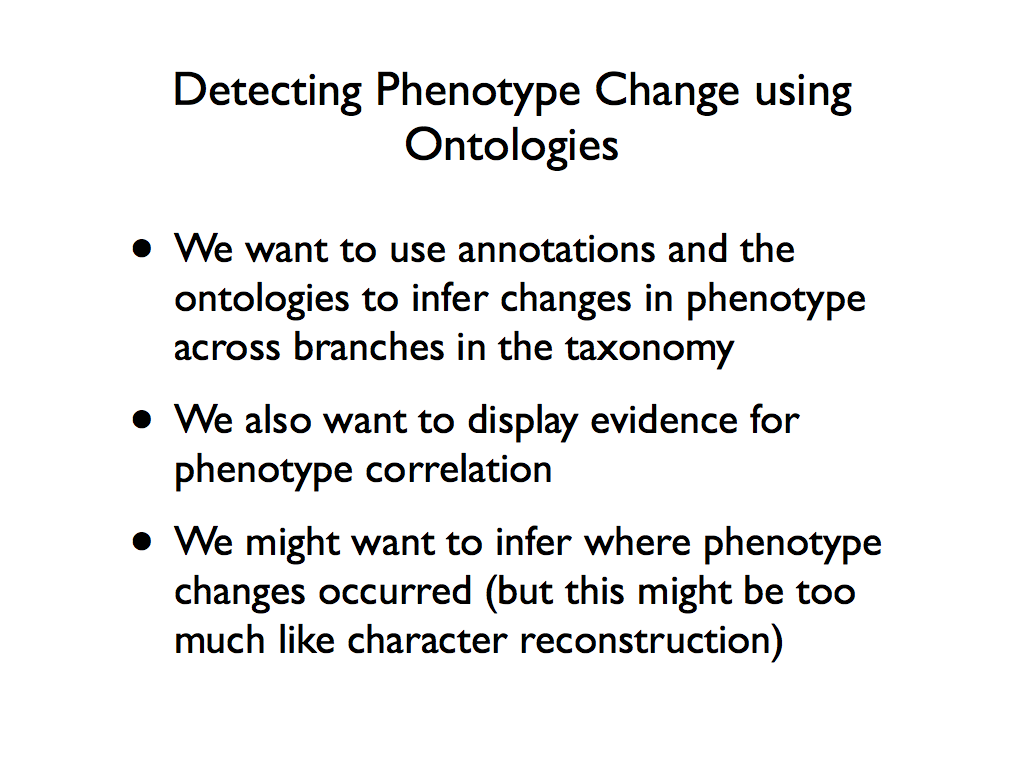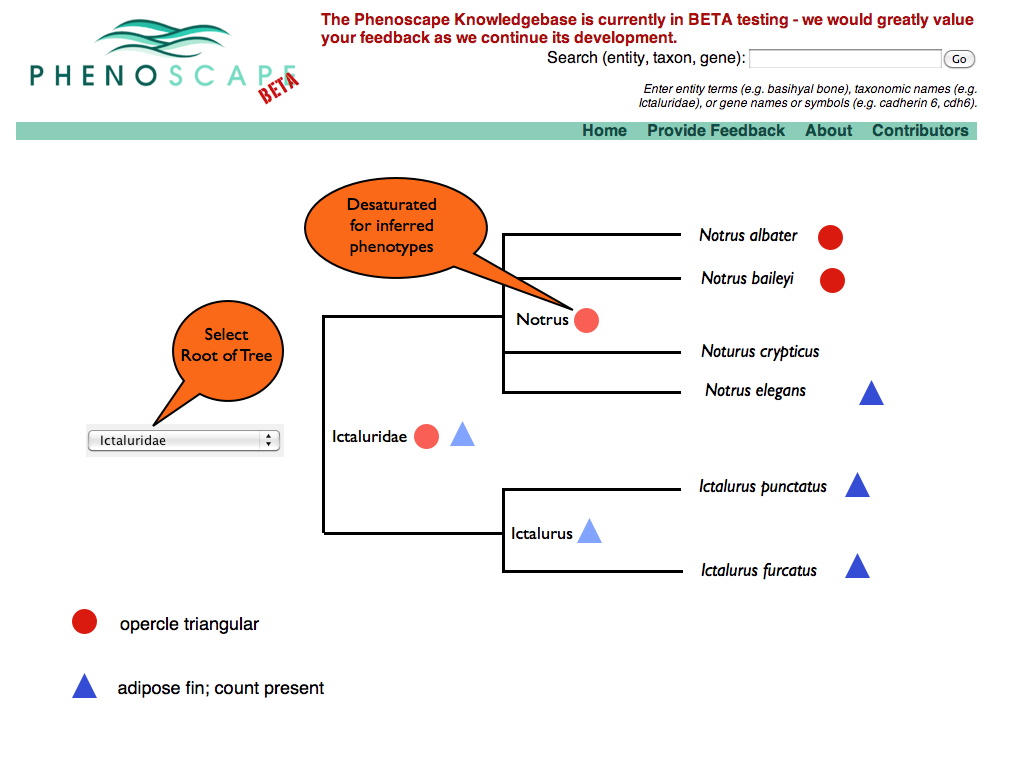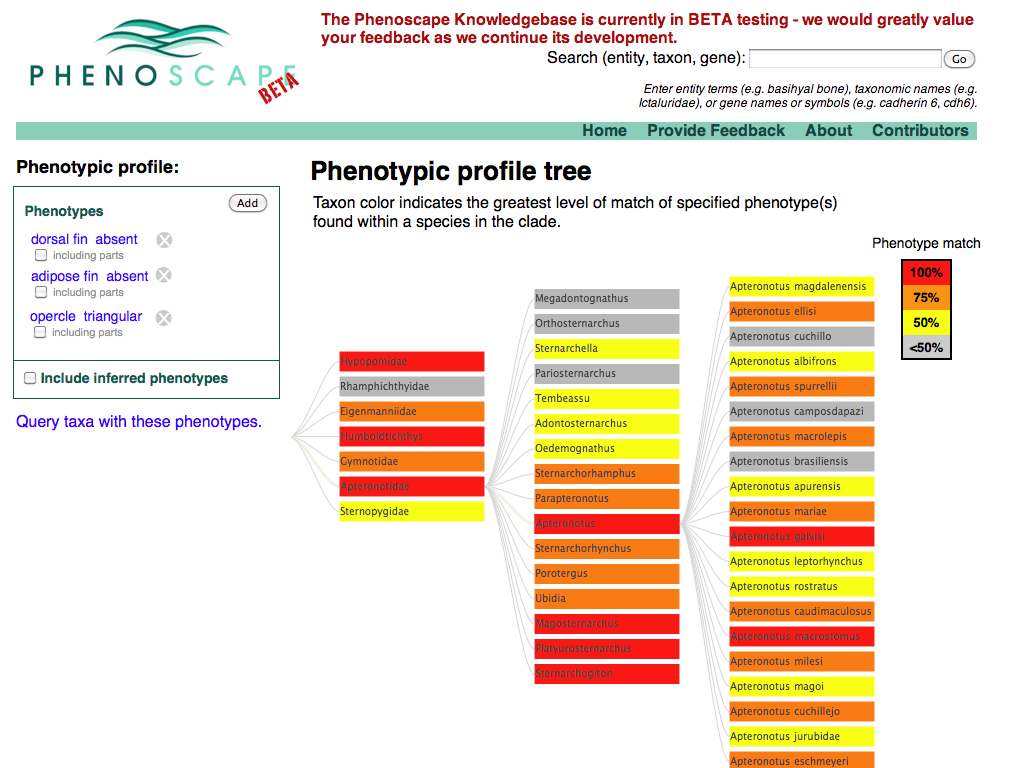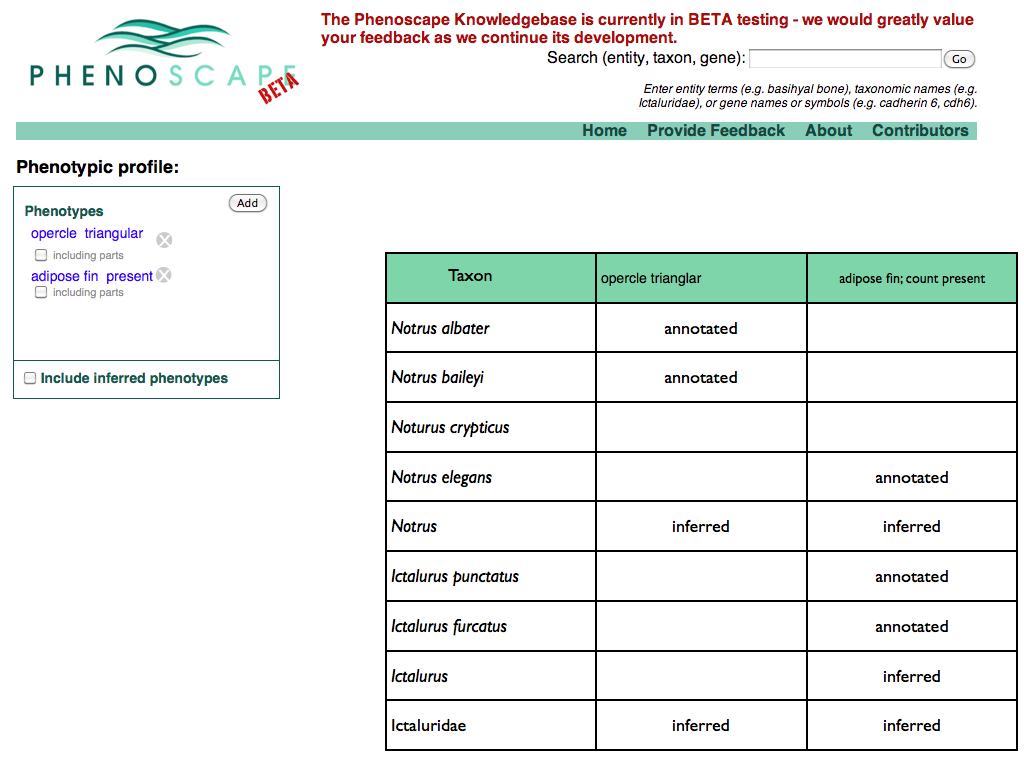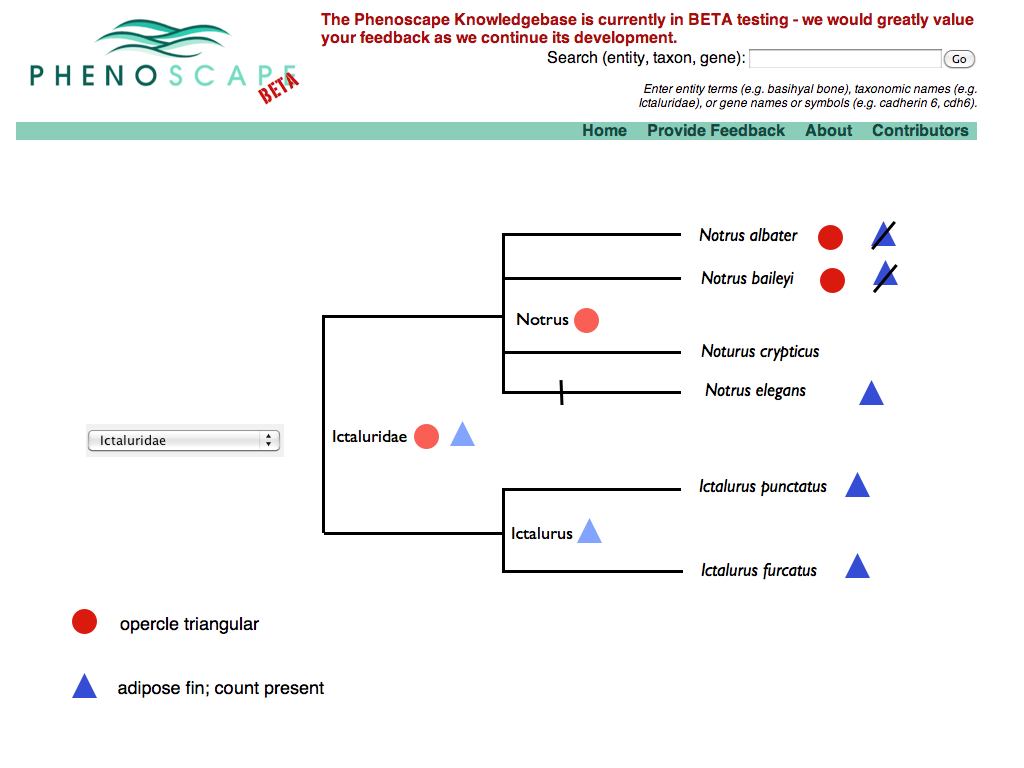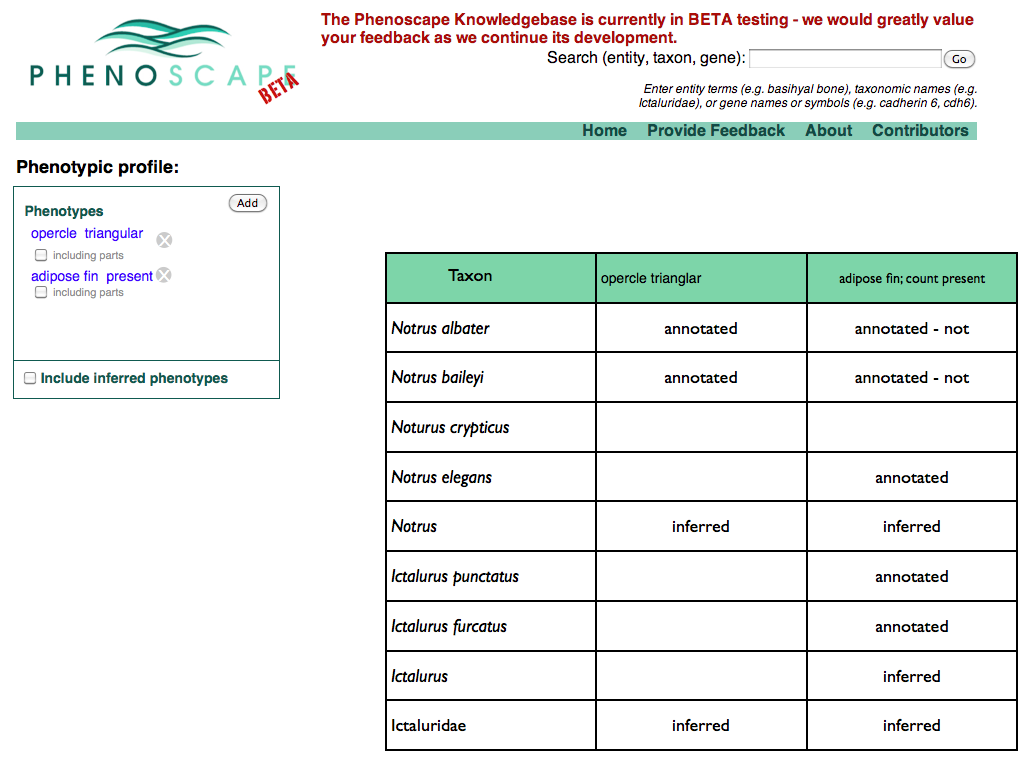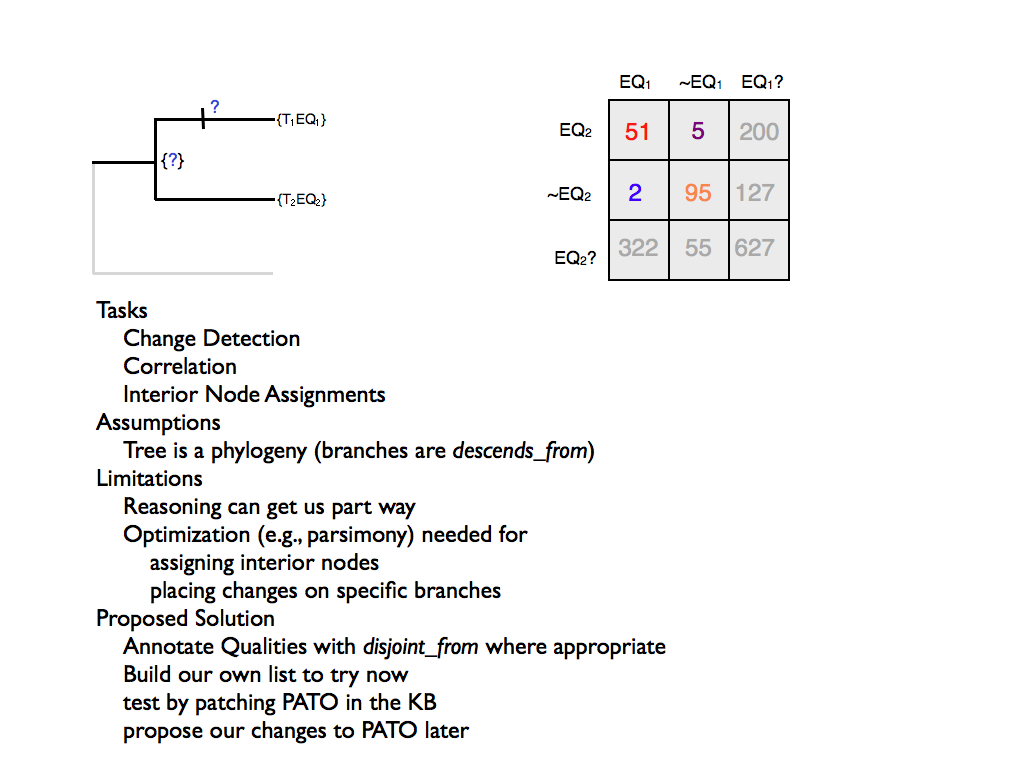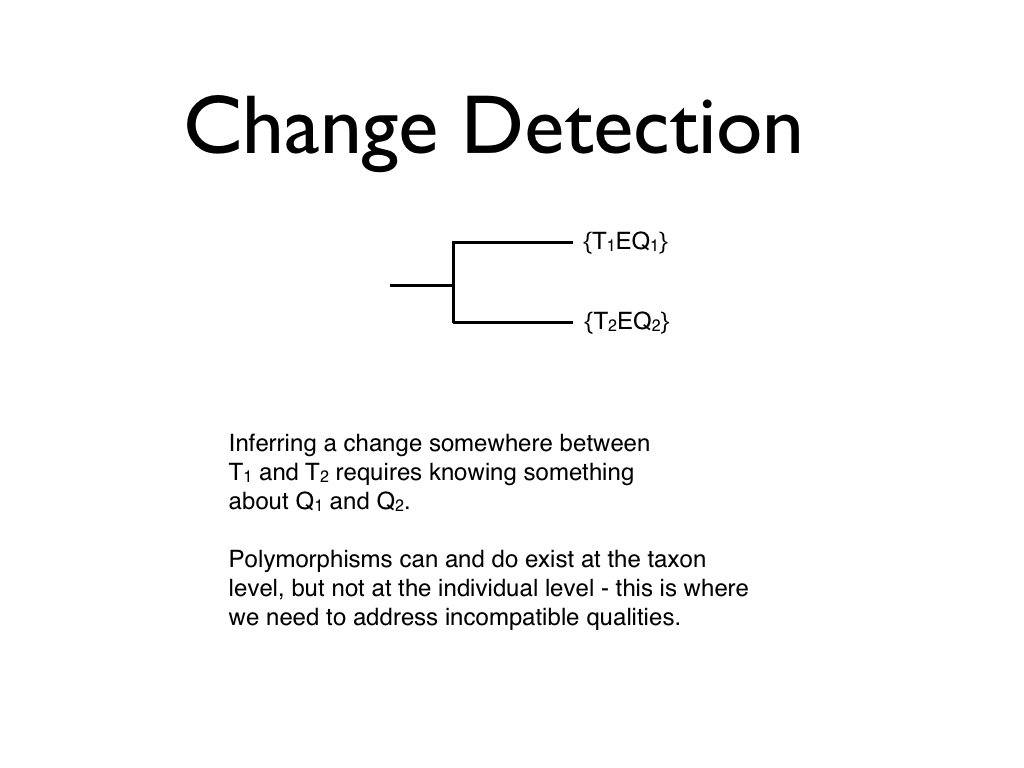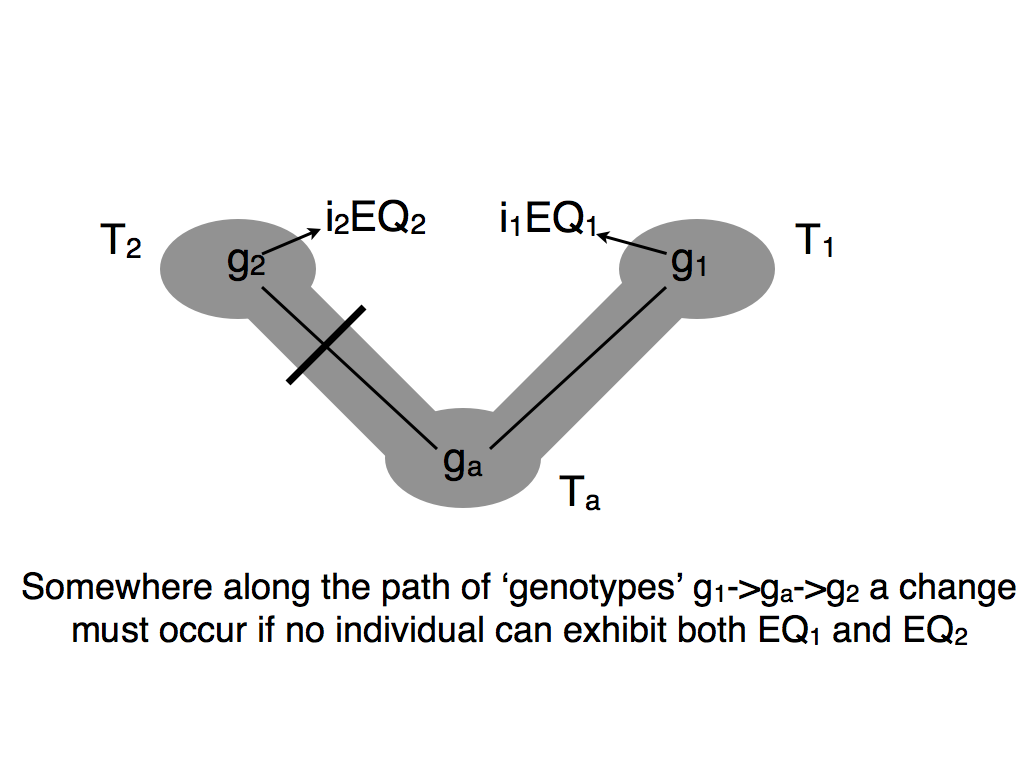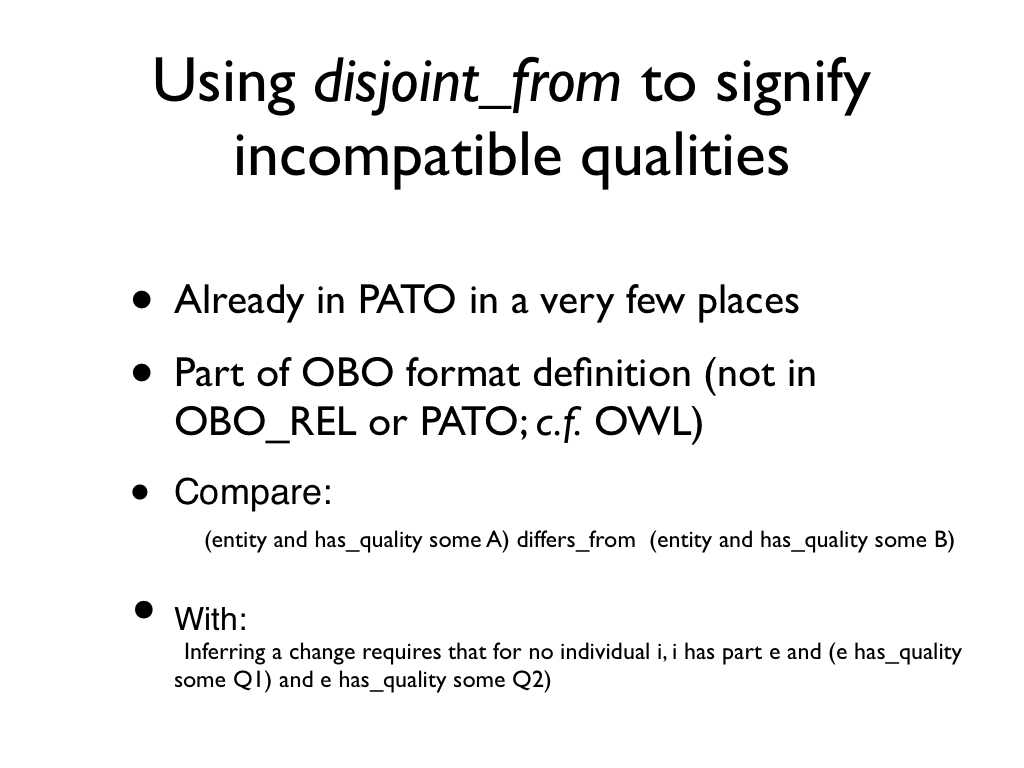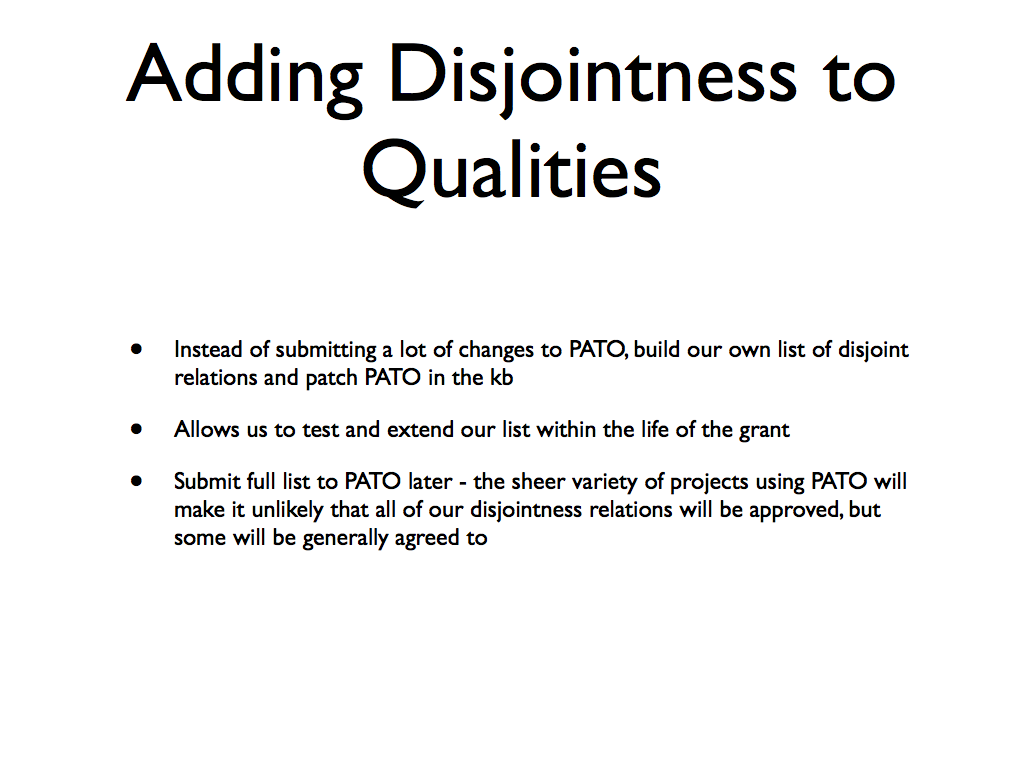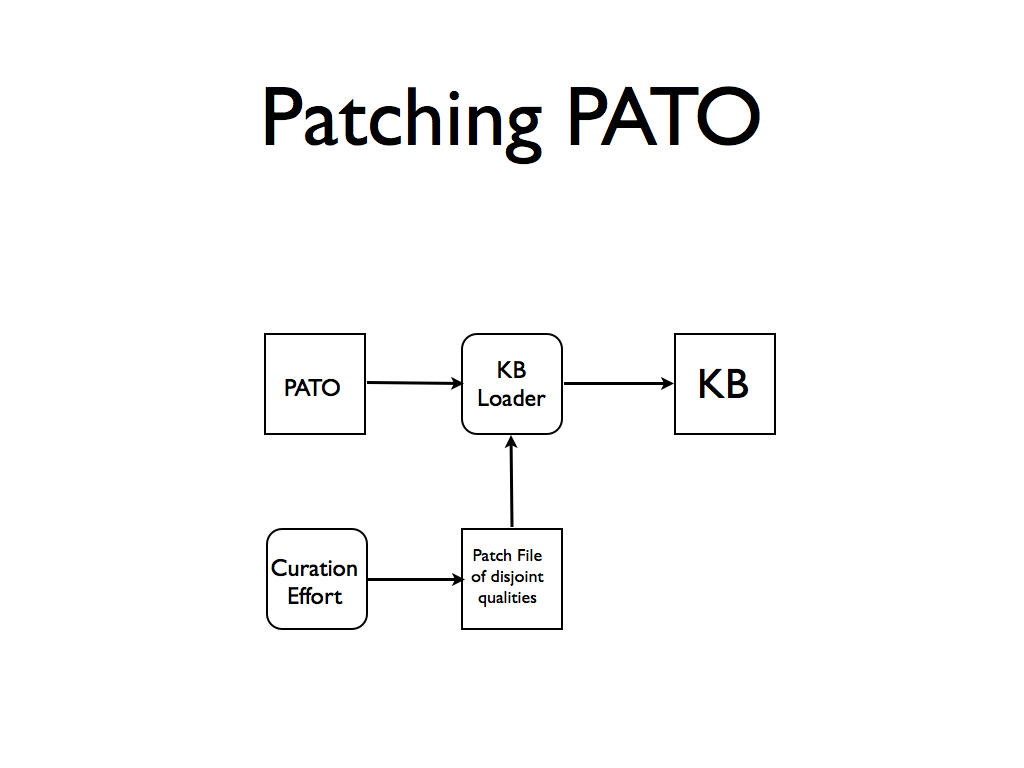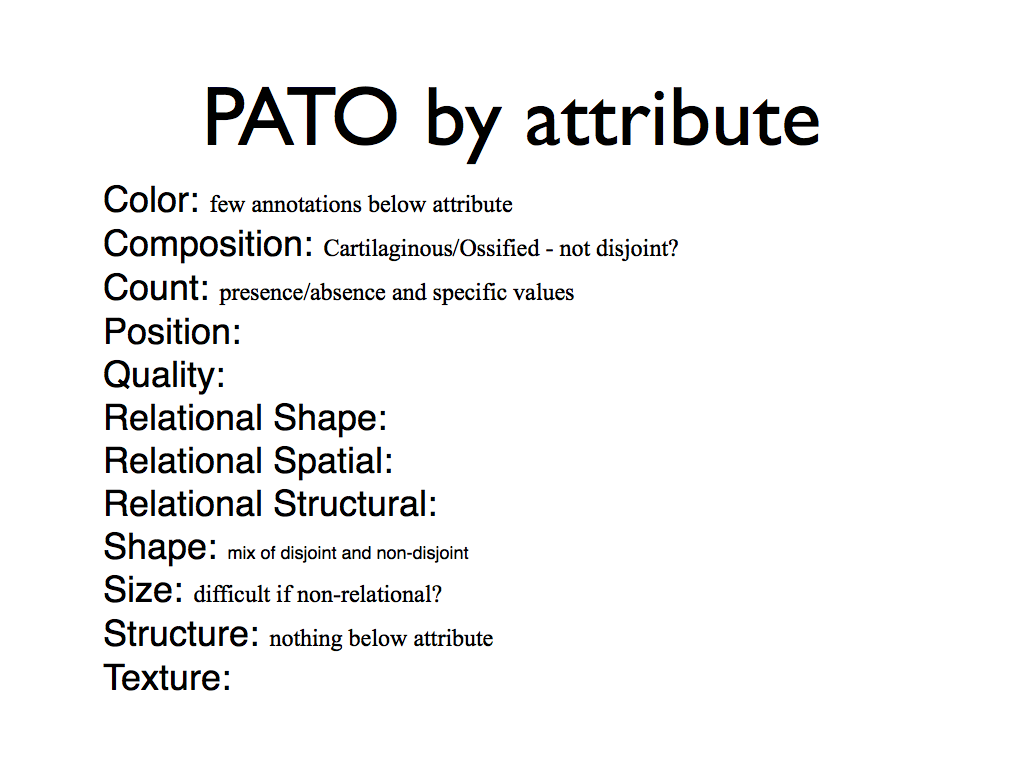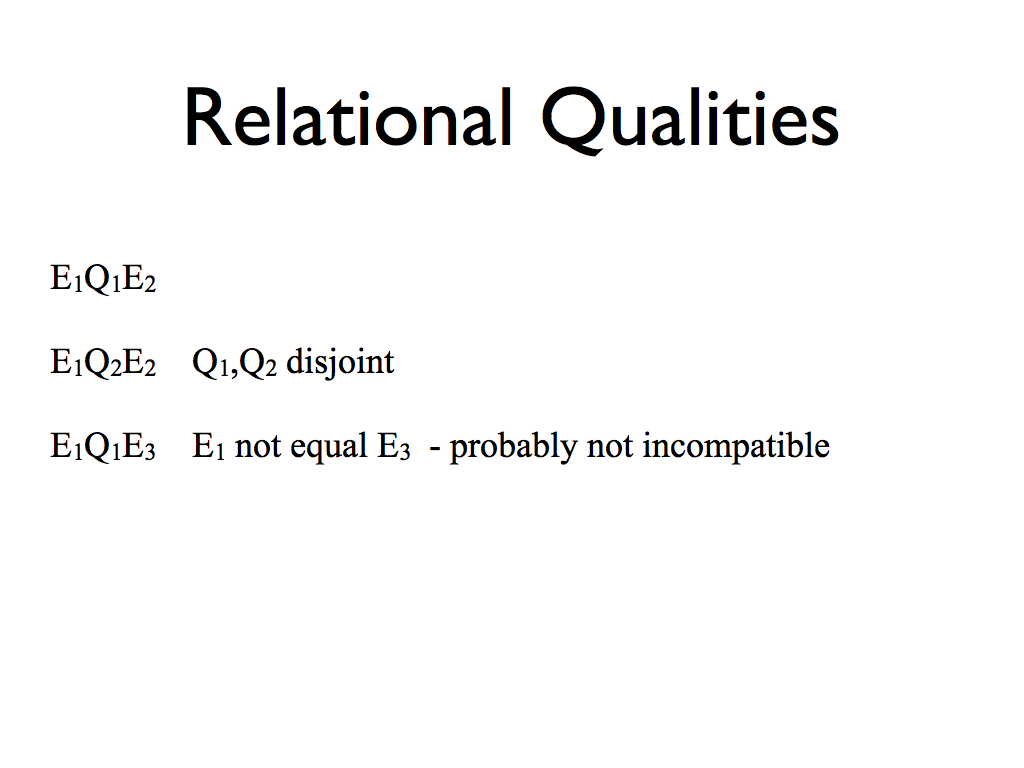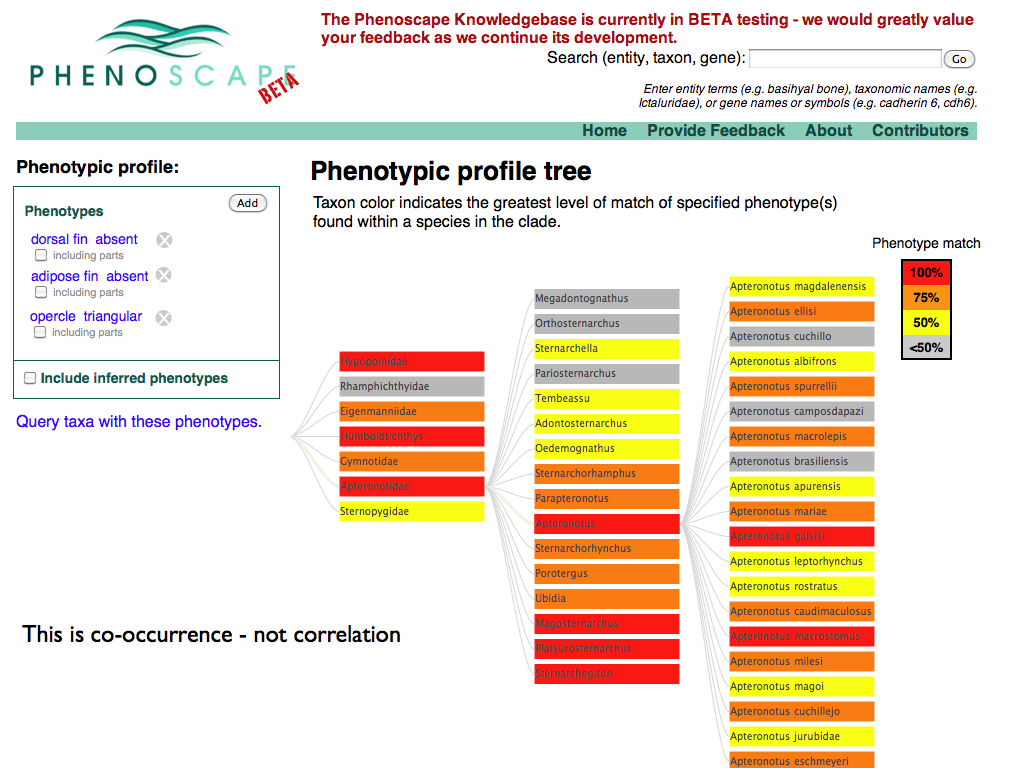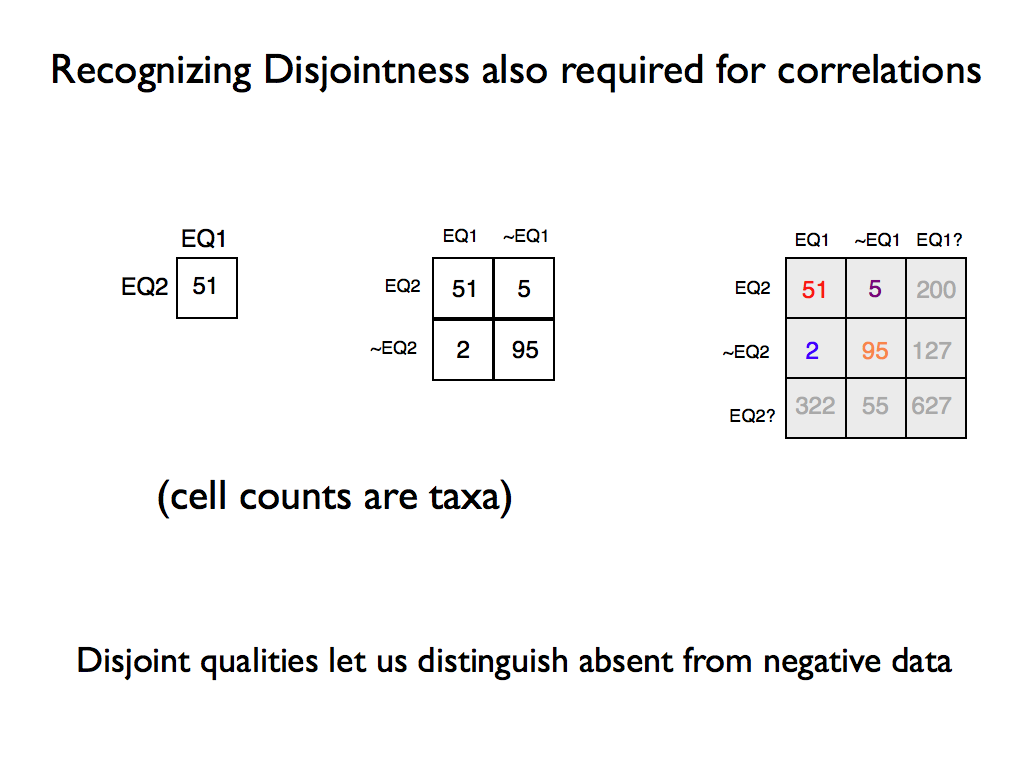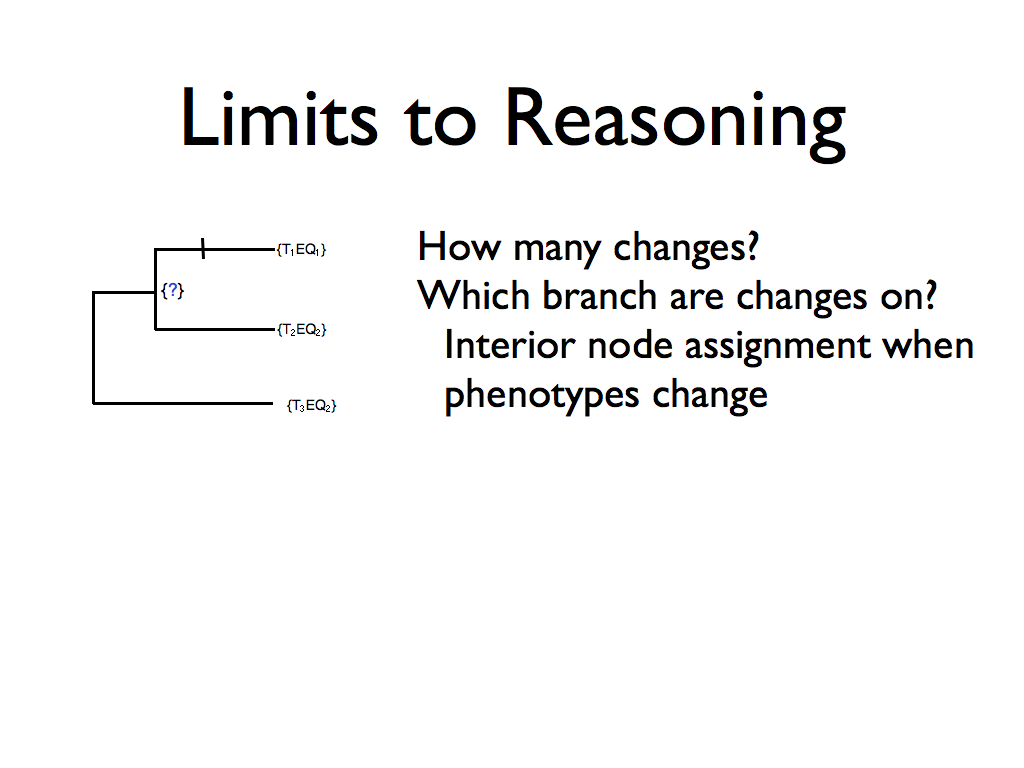Change And Correlation
Contents
- 1 Version 1
- 1.1 Slide 1: Intro page
- 1.2 Slide 2: January Tree Display
- 1.3 Slide 3: Current Tree Co-occurance Display
- 1.4 Slide 4: A Phenotype by Taxon matrix we could have had
- 1.5 Slide 5: A tree with negative data and a detected change
- 1.6 Slide 6: A Phenotype by Taxon matrix with negative annotations
- 1.7 Slide 7: Change and Correlation diagrams and overview
- 1.8 Slide 8: Change Detection using incompatible qualities
- 1.9 Slide 9: Change Detection between individuals, using gene-tree species-tree
- 1.10 Slide 10: Disjoint_with and incompatible qualities
- 1.11 Slide 11: Changing PATO
- 1.12 Slide 12: Patching Process Flow
- 1.13 Slide 13: PATO breakdown by attribute
- 1.14 Slide 14: Incompatibility and Relational Qualities
- 1.15 Slide 15: Transition to Correlation
- 1.16 Slide 16: Correlation and Contingency Tables
- 1.17 Slide 17: Reasoning only takes us so far
- 2 Notes from March 30, 2010 meeting
Version 1
Slide 1: Intro page
Slide 2: January Tree Display
Slide 3: Current Tree Co-occurance Display
Slide 4: A Phenotype by Taxon matrix we could have had
Slide 5: A tree with negative data and a detected change
Slide 6: A Phenotype by Taxon matrix with negative annotations
Slide 7: Change and Correlation diagrams and overview
Slide 8: Change Detection using incompatible qualities
Slide 9: Change Detection between individuals, using gene-tree species-tree
Slide 10: Disjoint_with and incompatible qualities
Slide 11: Changing PATO
Slide 12: Patching Process Flow
Slide 13: PATO breakdown by attribute
Slide 14: Incompatibility and Relational Qualities
Slide 15: Transition to Correlation
Slide 16: Correlation and Contingency Tables
Slide 17: Reasoning only takes us so far
Notes from March 30, 2010 meeting
Peter presented the preceding slides. There was some discussion of the definition of disjoint, as mentioned on slide 5. OBO's definition refers to classes with no common members (as does OWL's). PM pointed out that entities related by develops_from may exhibit incompatible qualities. This might be a general problem related to temporal reasoning (entities changing qualities over time).
TJV questioned the need for optimization for the use case of placing a phenotype change on a tree, citing the example of identifying where on a tree a change corresponding to a phenotype of a zebrafish gene mutation. Peter did not have an immediate answer for this.
TJV mentioned liking the current Phenotype Profile interface (taxon tree on slide 3) and seemed to indicate that he thought showing contrasts in co-occurrence counts between sister taxa was good enough. HL observed that although the use cases did mention correlation, the usage was loose and that co-occurrence was closer to the intended meaning.
Overall the sense was that optimization was not required for the use cases we are planning to deliver by the end of the initial grant. Also that the issue of incompatible qualities is messy and it wasn't absolutely clear that we needed to address it at this point. PM asked Peter to send her some use cases to review.
JPB doubted whether adding disjoint_from relations between PATO qualities was sufficient and pointed out that almost any quality annotation to an entity is incompatible with an absent annotation. JPB thinks that handling this by adding a collection of disjoint_from relations would probably not work. HL brought up the issue of count ranges (e.g., 0-5, which is implicitly a polymorphism including absence as a possible 'state'). Count values will need special treatment in any approach to incompatibility as current curation practice is to put them in comment strings.
